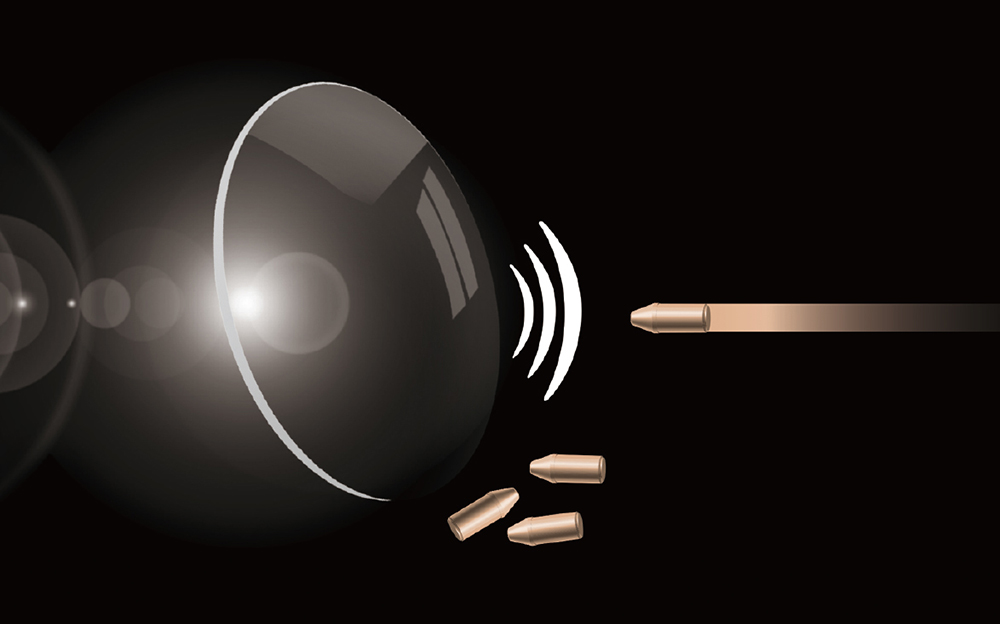Within a week of each other in 1953, two scientists on opposite sides of the globe independently discovered polycarbonate. Polycarbonate was developed in the 1970s for aerospace applications and is currently used for the helmet visors of astronauts and for space shuttle windscreens.
Eyeglass lenses made of polycarbonate were introduced in the early 1980s in response to a demand for lightweight, impact-resistant lenses.
Since then, polycarbonate lenses have become the standard for safety glasses, sports goggles and children's eyewear.

Advantages and Disadvantages of a Polycarbonate Lens
Since its commercialization in the 50s, polycarbonate has become a popular material. There are some problems with the polycarbonate lens. But it wouldn’t have become so ubiquitous if the pros didn’t tend to outweigh the cons.
Pros of a Polycarbonate Lens
Polycarbonate lenses are some of the most durable out there. Plus, they come with other advantages. When you get a polycarbonate lenses, you also get a lens that is:
Thin, Light, Comfortable Design
Polycarbonate lenses combine excellent vision correction with a thin profile—up to 30% thinner than standard plastic or glass lenses.
Unlike some thicker lenses, polycarbonate lenses can accommodate strong prescriptions without adding too much bulk. Their lightness also helps them rest easily and comfortably on your face.
100%UV Protection
Polycarbonate lenses are ready to shield your eyes from UVA and UVB rays straight out of the gate: They have built-in UV protection, no additional treatments needed.
Perfect Impact-resistant Performance
While not 100% shatterproof, a polycarbonate lens is extremely durable. Polycarbonate lenses have consistently proven to be one of the most impact-resistant lenses on the market. They’re not likely to crack, chip, or shatter if they’re dropped or hit with something. In fact, polycarbonate is a key material in bulletproof “glass.”

Cons of a Polycarbonate Lens
Poly lenses aren’t perfect. There are some cons to keep in mind before you decide to go with polycarbonate lenses.
Scratch-Resistant Coating Needed
While a polycarbonate lens is unlikely to shatter, it is easily scratched. So polycarbonate lenses can get scratched if they haven’t been given a scratch-resistant coating. Fortunately, this kind of coating is automatically applied to all of our polycarbonate lenses.
Low optical clarity
Polycarbonate has the lowest Abbe value of the most common lens materials. This means that chromatic aberrations could occur more often while wearing poly lenses. These aberrations resemble rainbows around sources of light.
If you are interested in more knowledge on polycarbonate lens, please refer to https://www.universeoptical.com/polycarbonate-product/




